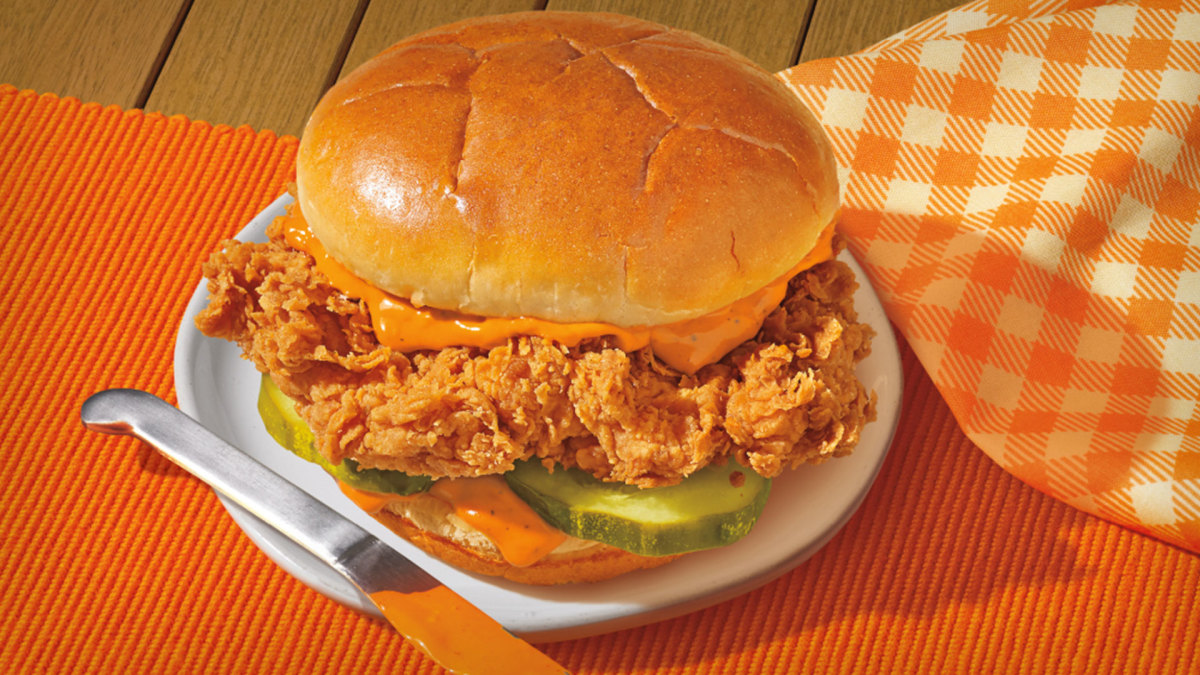Trendy fast food chain files Chapter 11 bankruptcy
Just because you sell a hot product that consumers want does not guarantee success as one popular chain has learned.

Over the past few years, chicken, specifically fried chicken, has had its moments.
You can thank Popeye's for kickstarting the trend as its 2019 introduction of a fried chicken sandwich created a frenzy. People lined up outside the Restaurant Brands International (QSR) - Get Free Report chain hoping to get their hands on the sandwich which included a larger-than-expected fried chicken breast, pickles, and spicy mayonnaise served on a brioche bun.
Related: Popular retailer suddenly closes all stores after bankruptcy filing
Before the sandwich became a craze, Popeye's was best known as being the clear RC Cola to KFC and Chick-fil-A in the fast-food friend chicken space. The launch of the sandwich, however, made it an instant player and turned the big two into the big three.
It was a phenomenon that fast-food rivals including its own sister brand, Burger King, along with top-player McDonald's wanted to duplicate. That's partially because of Popeye's success, but also partly a byproduct of volatile beef prices. Yes, McDonald's and Burger King wanted to copy Popeye's viral success, but they also wanted to diversify their menus across multiple proteins.
While fried chicken sandwiches have become a key part of the menu for Popeye's, Burger King, and McDonald's, a sort of side trend has developed — Nashville Hot Chicken. Now, one of the leading chains in the Nashville Hot Chicken space has filed for Chapter 11 bankruptcy. Image source: Popeye's
Hot chicken chain files Chapter 11 bankruptcy
Nashville Hot Chicken takes spicy to a new level. Instead of simply tossing the chicken in hot sauce, like you would a buffalo wing, the chicken used in Nashville Hot Chicken gets marinated in a spicy sauce as well.
The menu item has been growing in popularity through chain's dedicated to serving it, including Dave's Hot Chicken (which offers a variant on the classic recipe), and KFC offering Nashville Hot Chicken Tenders as a heavily-hyped limited-time offer.
Party Fowl, another growing chicken chain, embraced the trend along with a couple of other trendy ideas.
"Specializing in Nashville Hot Chicken, local beer, Boozy Slushies, and Brunch, Party Fowl offers diners a one-of-a-kind experience at all six of our locations. The menu, created by Executive Chef Bart Pickens, includes a number of hot chicken dishes with heat levels ranging from Southern Fried to 'Poultrygeist,' as well as creative spins on the classics," the company shared on its website.
Nashville hot chicken, alcoholic takes on kids drinks, and local craft beer are all enduring trends, but they were not enough to make Party Fowl a success as the fledgling fast-food chain has filed for Chapter 11 bankruptcy.
Party Fowl faces an uncertain future
In a court filing, Party Fowl noted that it only survived the covid pandemic because of various federal government programs. It also shared that it was able, despite a variety of challenges, to add its Destin, Fla., location.
That opening, however, was part of its eventual financial downfall.
“However, and unfortunately, the two newest locations — Chattanooga and Destin — have failed to gain a foothold and have been Party Fowl’s two worst performing locations. In addition to supporting these two locations, the other [four] Party Fowl locations have dealt with inflationary pressure, higher wages and turnover among staff, higher food costs and lower demand across the restaurant industry,” the company shared in its filing, which was first reported on by The Nashville Post.
In filing, Party Fowl, noted that it was behind in payments to vendors and in paying its taxes.
The company remains open and plans to file a reorganization plan within the 90 days its Chapter 11 filing allows. Party Fowl has asked the court to "pause addressing their 'non-critical but highly damaging financial obligations' so that they can build sufficient cash flow to 'satisfy priority and administrative claims' under a Chapter 11 plan of reorganization," according to the paper.
What's Your Reaction?



























































